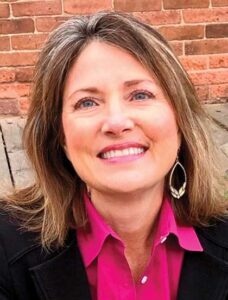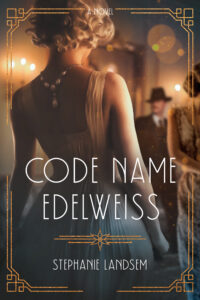
Stephanie Landsem writes historical fiction for women, about women. She has traveled the world in real life—and traveled through time in her research. As she has learned about women of the past, she has come to realize that those long-ago women were very much like you and me. They loved. They dreamed, And they made mistakes. Along the way, they also struggled, failed, and triumphed.
Stephanie lives in Minnesota with her husband, two cats, and a dog. She has four adult children.
It has been ten years since you were first a guest at Divine Detour! At that time, your book, The Well, had just been released, and you considered it a divine detour. Have there been other ‘divine detours’ since that time?
There have been plenty! Some of them I see only in hindsight, as we often do with God’s plan in our lives. My biblical fiction—The Well, The Thief, and The Tomb—were published every spring for three years. At that time I thought that to be a successful author, I’d need to publish a book every year. God had other plans and they were for my good. My fourth novel, In a Far-Off Land, wasn’t published until almost five years after The Tomb. As I look back, I can see that my family, my mom’s health, and my own spiritual growth were God’s priorities during that time. Now, almost two years later, Code Name Edelweiss is releasing, and I know God’s timing is better than my own when it comes to publishing, just as in all things.
Please tell us about your writing heroes: One you’ve met… And one you haven’t met.
A hero I’ve met: Mesu Andrews. Way back when I published my first biblical novel, The Well, I was privileged to meet Mesu at an ACFW conference. At the time, I was amazed at her caring heart and generosity of spirit to an unknown author. We’ve talked many times since, and I continue to admire her—for her excellence in her craft and her wonderful novels, but also her dedication and unwavering support of other writers. I strive to show the same kind of generosity that Mesu has shown to me.
Anyone who follows me on social media will know that I’m a big fan of Amy Harmon’s work. I find an abundance of authenticity, emotion, and storytelling brilliance in every one of her novels. I aspire to write with the same depth of meaning she brings to every book. I haven’t met her—yet! But she has agreed to join me on Where Fact Meets Fiction this spring and I’m looking forward to finally meeting her.
 Your new book, Code Name Edelweiss (Tyndale House, March 2023) is set in the U.S. during WW II. Please tell us about it.
Your new book, Code Name Edelweiss (Tyndale House, March 2023) is set in the U.S. during WW II. Please tell us about it.
The main character, Liesl, is a single mother who is responsible for her aging mother and younger brother in the dark years of the Great Depression. As the story opens, she loses her job as a stenographer at MGM studios and is desperate to find a way to pay the rent and buy food for her family. She’s offered a job by Leon Lewis, a Jewish lawyer who claims Adolf Hitler’s Nazis are infiltrating the German American community. She agrees to work for Lewis although she doesn’t believe his preposterous notion. What she finds is shocking and far more dangerous than either she or Lewis expected.
Liesl’s story is based on real events. What inspired you to write it?
I stumbled upon the story of Leon Lewis and his spy network when I was researching my last novel, In a Far-Off Land. As I read about Hitlerites infiltrating Hollywood and Nazis taking over German American groups in Los Angeles, I was incredulous. Why hadn’t I heard of this before? How could something like this happen in America? I knew I had to find out more and write about this unknown moment in history.
What did you learn? How, and why, was Hitler involved?
The German vice-consul to Los Angeles, Georg Gyssling, exerted immense control over the content of films produced by all the major Hollywood studios. He was referred to as “Hitler’s Hollywood Consul” and his task was clearly defined: to ensure that no films portrayed Jews or Jewish life in a positive way and that no films were critical of the German people or the Nazi government.
Adolf Hitler was a master at propaganda. He knew Hollywood films were the best way to reach not only the American people, but people throughout the world. If he could control them, he could sway public opinion toward his beliefs in a way that nothing else could. His plan was to infiltrate the Hollywood studio system with German Americans and Nazis, and without Leon Lewis and his spies, he may have succeeded.
All of this sounds fascinating! How did you go about researching your real life hero in the book, Leon Lewis?
Much of what we know about Leon Lewis and his spy operation is housed in the University of Southern California archives, so there were plenty of primary sources that were both a treasure of information and one of inspiration. I also credit an excellent book by Steven Ross, Hitler in Los Angeles, with telling this chilling and little-known story and as a treasure trove of details about the people involved.
Thanks, Stephanie! It’s nice to have back at Divine Detour.
~ ~ ~
For more information about Stephanie, visit her website and follow her on Facebook, Twitter and/or Instagram.
To order Code Name Edelweiss, go to: